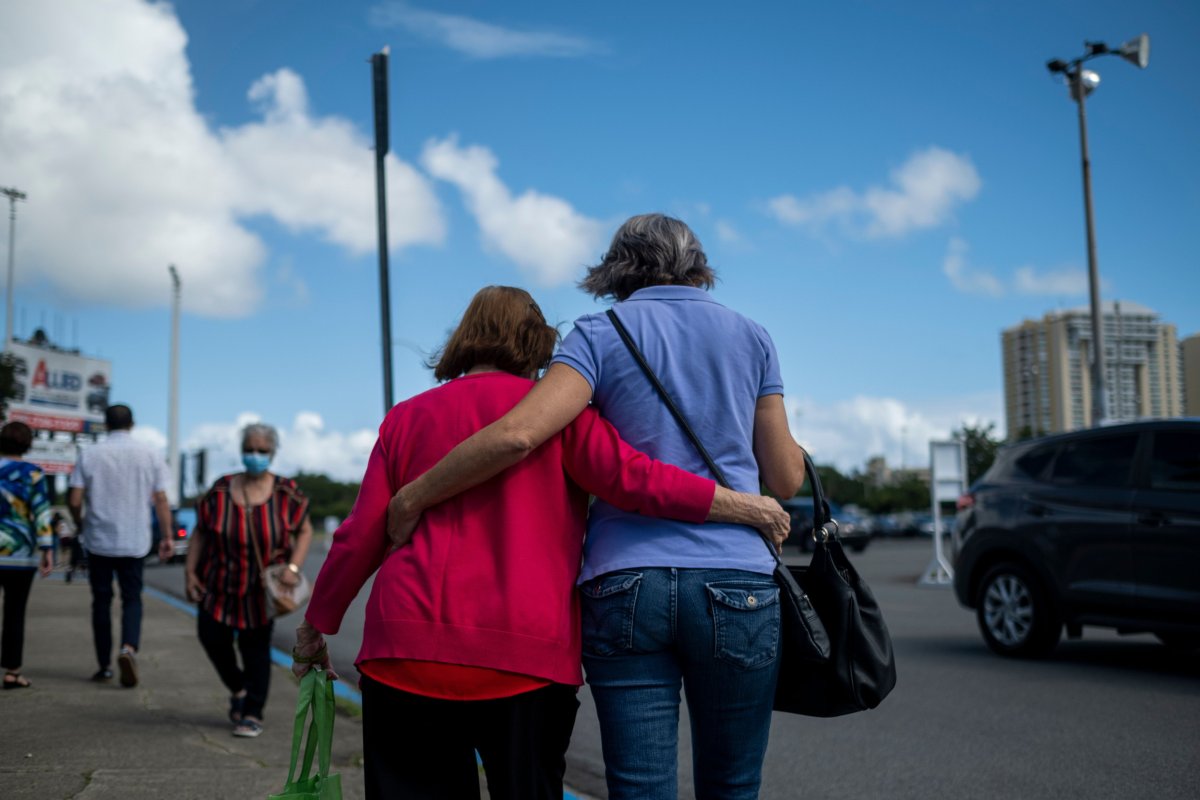The recent visits of first lady Jill Biden and U.S. Surgeon General Vivek H. Murthy to Puerto Rico have cast a spotlight on the island's severe loneliness epidemic, particularly among its elderly population. This critical issue demands immediate action and compassionate solutions as the territory faces an unprecedented demographic shift toward an increasingly older populace. The consequences of isolation on seniors' physical and mental well-being have reached a breaking point, and the dialogue between the first lady and Puerto Rico's Governor about the island's most vulnerable populations—the elderly—underscores the urgency of addressing this crisis head-on.
Puerto Rico faces an unprecedented and troubling demographic shift that will profoundly impact its society if unaddressed. Over the last decade, the percentage of older adults has significantly increased. To understand the scope, in 1950, approximately only 3.9 percent of Puerto Rico's population was over 65 years old. By the year 2000, this proportion had risen rapidly to 10.8 percent of the population. But most alarming are the 2020 estimates, which place the share of Puerto Ricans over 65 as the 10th highest in the world—an astounding statistic for the territory. While the overall population has declined due to economic factors driving young people to migrate, the number of people over 65 paradoxically continues rising steeply due to long-term declines in fertility rates coupled with residents' increasing life expectancy. This means deaths outpace births, while seniors live longer and lack familial support networks.
The departure of 700,000 working-age adults in the past two decades has left an isolated, aging population lacking family caregivers. This mass migration accelerated after Hurricane Maria devastated the island in 2017, and amid the COVID-19 pandemic, worsening already high unemployment. Nearly half of the elders had at least one child living outside Puerto Rico even before the current wave. This diaspora fragments families, reduces familial support systems, and leaves many sick and elderly people without adequate care. Among Puerto Ricans aged 65 and older, there exists a significant disparity in health outcomes. A substantial portion, approximately 43.3 percent, live below the poverty line. Furthermore, this demographic often experiences isolation, both geographically and emotionally, primarily due to managing chronic illnesses. This isolation can exacerbate their health challenges and further contribute to their overall health disparities. In fact, nearly 4,000 elders have been abandoned in hospitals since 2017. Studies show isolation decreases lifespan similarly to smoking. For these abandoned elders, their anguish is further compounded by minimal community support and infrastructure in the financially strained situation of Puerto Rico. This isolation and lack of care accelerate mental and physical decline.

Medical professional shortages further exacerbate matters. The high rate of outmigration includes many health care professionals leaving Puerto Rico for better opportunities on the U.S. mainland. This exacerbates the island's existing scarcity of medical providers and reduces elderly people's access to health care. With greater medical needs due to their isolation and declining health, losing doctors is especially devastating for the elder population. Puerto Rico has lost over one-third of its physicians since recent hurricanes, severely restricting people's access to health care and leaving many underserved.
In 2019, Puerto Rico had less than half the number of active doctors per capita compared to the overall U.S. population. Already typically in poorer health than mainland elderly Americans, Puerto Rican seniors now struggle greatly to find medical providers, often living with painful and discouraging untreated conditions due to the doctor shortage. Importantly, 60 percent of Puerto Ricans receive health services through Medicaid, the Children's Health Insurance Program (CHIP), Medicare, or Veterans Affairs. The lower reimbursement rates and more restrictive eligibility guidelines of these programs in Puerto Rico compared to U.S. states drives further provider departure from the island, worsening this elder health crisis.
While strategies like the Incentives Law offering a 4 percent income tax rate help retain some medical professionals, these efforts have proven insufficient to address departures from the island and ensuring health access to our population and to ensuing loneliness. Bolder, more comprehensive solutions to combat loneliness are urgently required. This past January, the governor recently signed a new remote work law for private companies, allowing more flexibility for employees to work from home. This could enable family members who have moved away to provide remote caregiving and companionship to elderly relatives through video calls and online interactions. While not a complete solution, increased remote work options facilitate greater connection between geographically separated families to alleviate isolation.
Additionally, the establishment of multigenerational care centers across communities would provide integrated medical, social, and caregiver support services to isolated elders lacking family nearby. These centers could screen for physical and mental health needs, connect seniors with doctors, organize daily activities and social engagement opportunities, and assist with tasks like transportation, food access, and coordinating in-home health aides. Taking multifaceted steps like incentivizing doctor retention, maximizing insurance coverage, and creating senior care infrastructure can start to turn the tide on the island's elder health crisis.
With compassion and commitment, both from governmental leaders and local communities, we can build a society that enables our elders to age with dignity. Puerto Rico's seniors deserve no less—the time for decisive action is now.
Mariela Torres Cintrón is a Public Voices fellow of The OpEd Project and AcademyHealth and an assistant professor at the University of Puerto Rico, Medical Sciences Campus, School of Public Health.
The views expressed in this article are the writer's own.
Uncommon Knowledge
Newsweek is committed to challenging conventional wisdom and finding connections in the search for common ground.
Newsweek is committed to challenging conventional wisdom and finding connections in the search for common ground.
About the writer
To read how Newsweek uses AI as a newsroom tool, Click here.








